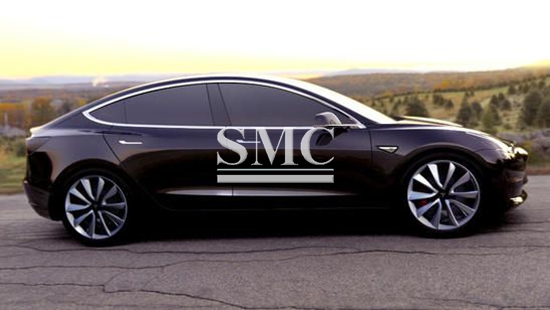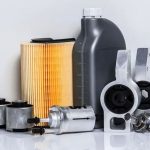
Nowadays, 27% of aluminium consumption goes towards the transport market. Especially in the vehicles’ industry, aluminium has started to play a very significant role and households pay a great deal of attention to details when purchasing a car. Luckily, a metal like aluminium has helped reaching all household’s expectations and it shows no signs of slowing down.
Over the next 10 years, aluminium content in cars may increase by 30%. There could be up to 200 kg of aluminium in every car by 2025! From engine cylinders to radiators, wheels, suspensions and body parts, more and more components are started to be made out of aluminium alloys.
Cars –together with fuel- allow us to travel long distances. Thus, the lighter the body of the car, the less the fuel needed to reach that distance. Manufacturers are now substituting steel parts with aluminium equivalents because aluminium specific weight is almost one third that of steel. The result is a one third decrease in cars’ weight without decreasing in the body’s size! Not to mention that a lighter car means less energy and fuel used for acceleration, breaking and can even handle bends better.
Roughly, a weight reduction of 10% means 5-7% fuel saving in normal cars. For electric vehicles, the percentage decrease in weight is matched exactly by the same percentage increase in battery life. Hence, reduction in weight is even more significant there! Yet, why have we seen a significant increase in the use of aluminium just in recent decades? That’s explained by the 1970s oil crisis, which made fuel more expensive and car companies started to find ways of using fuel more efficiently.
Yet lightness is not the only quality that makes aluminium ideal. The metal already proves to be ‘green’ thanks to the energy and fuel reduction, which mean lower carbon emissions. Moreover, the possibility of recycling aluminium an infinite amount of times, make it an even more sustainable solution. Every year, nearly 90% of automotive aluminium scrap is recovered and recycled.
Aluminium has another very useful property: it is very good at absorbing shock. Panels can be designed to bend ‘predictably’ during a crash so to absorb most of the crash energy before it reaches the passengers. Hence, aluminium components positively affect passengers’ safety.
Lastly, the metal has very good dent resistance and it is an easy-to-clean surface. Thanks to oxides layer that forms on top of the metal, aluminium is naturally corrosion resistant as well. Thus, the ‘shiny’ look of a brand new car can be preserved over time with little maintenance.
At Shanghai Metal Corporation we specialise in aluminium products for cars’ condensers, radiators and evaporators. Aluminium parallel flow micro channel flat tube, Aluminium Brazing Foil/Strip For Heat Exchange and Aluminium composite seamless Round/D-shaped Tube are examples of products we offer. For inquiries and a full list of products, please click here.
Shanghai Metal Corporation is a trusted aluminum alloy, aluminum foil price, stainless steel price and stainless steel manufacturer, kinds of stainless steel in china.
Guest contributors are welcome at the Alloy Wiki.It is a weekly wiki and guide on alloy information and processing technology, while also about the vast array of opportunities that are present in manufacturing. Our team of writers consists of a Machining Material Supplier / Machinist / Tool and Die Maker, a Biomedical Engineer / Product Development Engineer, a Job Development Coordinator / Adjunct Professor, and a President and CEO of a manufacturing facility.
Link to this article:Car Companies in the Pursuit of High Quality Aluminium Cars
Reprint Statement: If there are no special instructions, all articles on this site are original. Please indicate the source for reprinting:Alloy Wiki,thanks!^^


